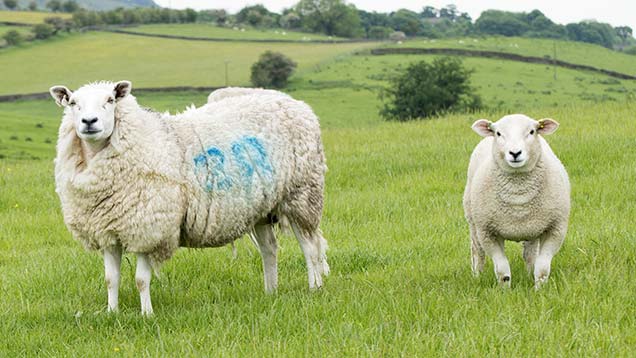New genetics research launched to help improve ewe longevity
 © Nigel Hillier
© Nigel Hillier Eblex-funded research looking into the genetics of ewe longevity could benefit the UK sheep industry by £4.35m by reducing culling rates and increasing ewe productivity.
The one-year research project, which is being carried out by Scotland’s Rural College (SRUC), is aimed at finding the best way to include the productive lifespan of sheep in UK breeding evaluations.
The average replacement rate within the UK flock is currently 20-25% a year. Researchers say finding genetic solutions to increase the productive lifespan of ewes, and reduce the number of replacements required, will be worth an estimated £1-1.50 a ewe a year.
See also: Genetic analysis of longevity on sheep
SRUC livestock geneticist Dr Joanne Conington, who is leading the research, says that improving aspects of maternal performance is the key to reducing wastage and flock inefficiencies.
“By identifying and avoiding the use of underperforming families and strains of sheep, and by highlighting good ‘maternal’ rams for breeding, farmers can better select their breeding stock with the additional breeding tools that it is hoped this project will deliver.”
The research will outline longevity and then determine if it is possible to use existing performance recording datasets to gather information about it. The innovative approach will use the last known lambing event of a ewe to infer information about productive lifespan from national data sets. This methodology is currently being used by Signet to performance record some beef breeds to produce a Lifespan Estimated Breeding Value (EBV).
Eblex breeding specialist Sam Boon is optimistic about the potential applications for this research. “In recent years there has been a massive increase in interest in the recording of maternal breeds and the purchase of Signet recorded rams to breed female replacements. These tools will build on this interest and place greater focus on the efficiency of performance within our sheep flocks,” he says.
Initially three breeds – the Poll Dorset, Lleyn and Texel – will be used, because of the large data sets stored by Signet.
